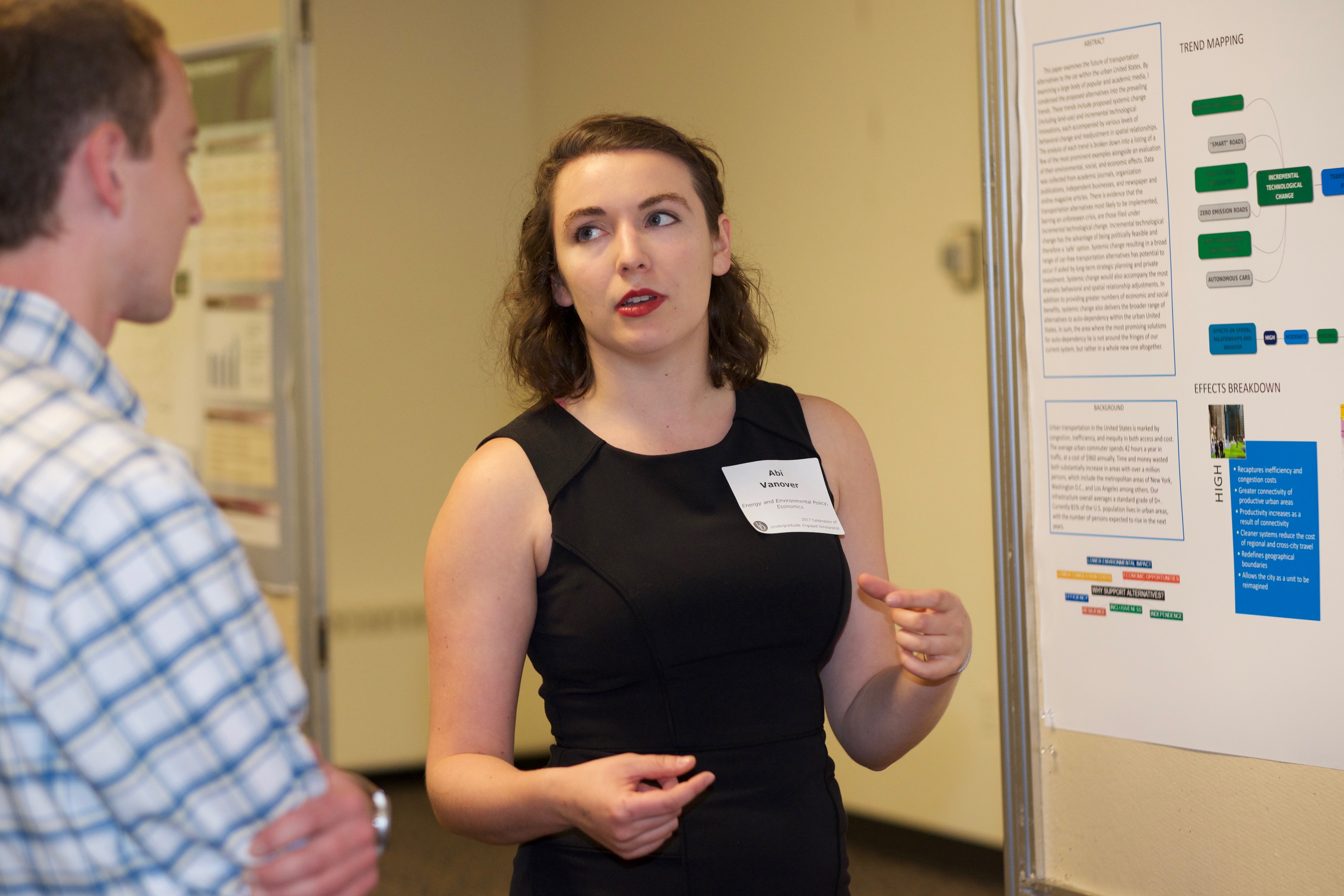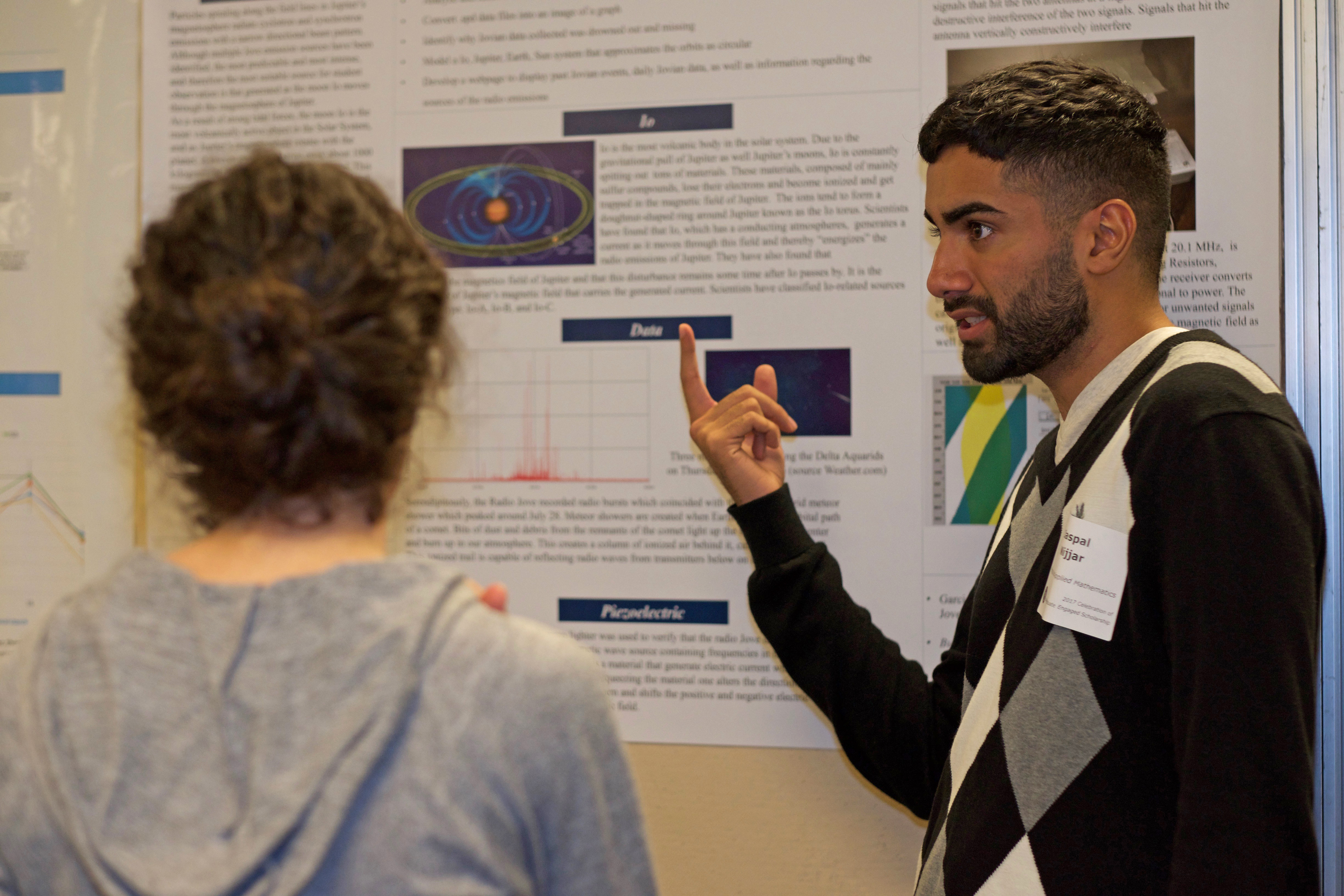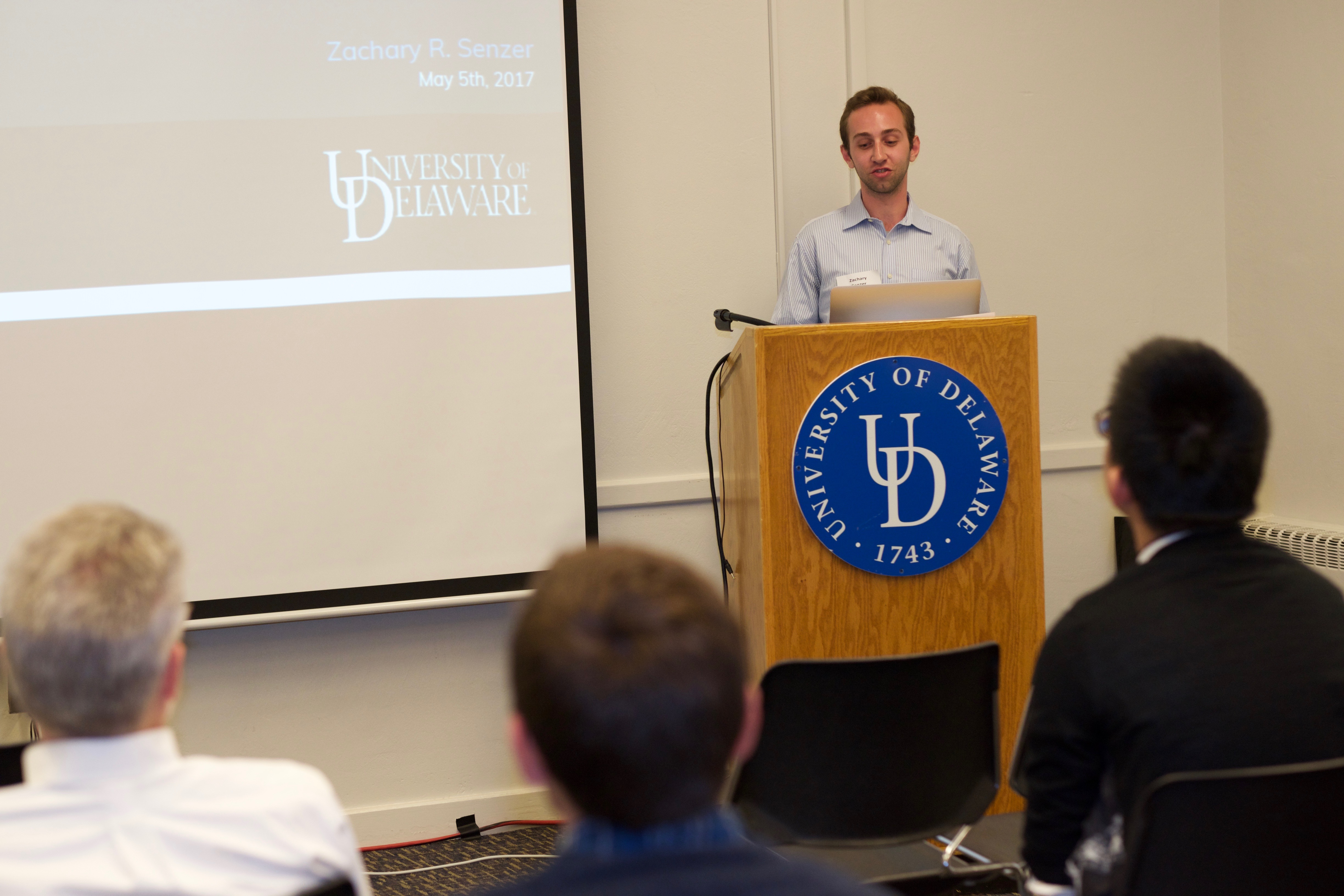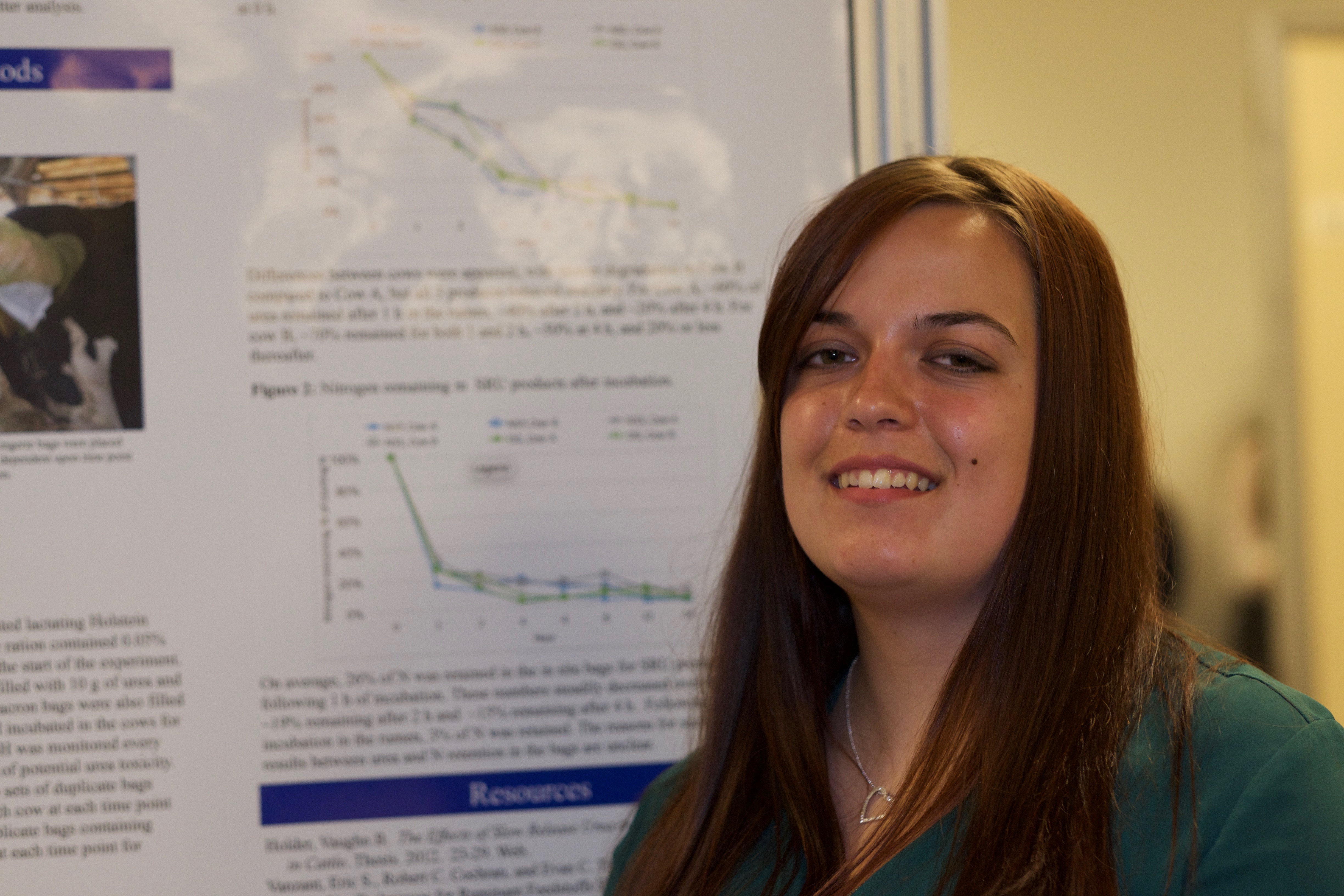

Celebrating undergraduate research
May 11, 2017
Wide range of studies on display by 156 students
Freshman honors math major Samantha Rosenthal and sophomore honors civil engineering major Rachel Schaefer were in Perkins Student Center the other day, having a look at what other students were exploring at the University of Delaware. They came away quite impressed.
They checked out the poster session at the Celebration of Undergraduate Engaged Scholarship (CUES), asked questions and learned not only about some interesting research but also how it would be when they presented their own.
"This is cool," said Rosenthal, who will be one of UD's 2017 Summer Scholars. "There are some really complicated things and I can't understand it all. But they're really well prepared for questions."
It was news to both of them that snails had parasites – probably not something many people consider. But they found plenty of details in Alex Matacchieri's marine science poster on how DNA profiling techniques can be used to study trematodes found in the eastern mudsnail.
This kind of curiosity is how research grows, thrives and eventually provides insight and potential solutions for complicated problems.
A total of 156 students gave oral presentations or presented posters at the May 5 event and there was something for just about every inquiring mind to consider – ankle instability, horse guts, circulating tumor cells, how pulsed light affects red raspberries, community resiliency, habitual cheaters, underground gas concentrations, bacterial cell walls, the adolescent brain, wind energy harvesters, guitar-playing robots, transportation networks, social trust in China, to name a baker's dozen.
Kassandra Moyer, daughter of a fourth-generation farmer in Schuylkill County, Pennsylvania, has a double major in animal and food science and in agriculture and natural resources.
She said her father often asks what she is learning, and sends questions along to her professors, too.
Her research looks at ways of improving microbial protein production in dairy cows, which requires a stable supply of ammonia in the cows' rumen (the first of a cow's four stomachs, where digestion begins). Her study looks specifically at the rate at which slow-release urea products release urea, which provides nitrogen and is essential for microbes to produce needed protein.
In separate meeting rooms, students gave oral presentations on their work in engineering, the humanities and social sciences, biology, technology and economics.
Zachary Senzer, a computer science major and honors degree with distinction candidate, explained a system he developed that analyzes online question/answer forums to automatically identify the goals and problems software developers are working on.
The system was ranked more helpful, faster and generally "superior" by 10 evaluators and after graduation Senzer will take his skills to the West Coast to take a position with Google.
Margaret Mary Rilling, an accounting major and honors degree with distinction candidate, presented her analysis of undergraduate accounting education in America, then stuck around to listen to other presentations and ask some questions of her own.
"I signed up to practice for my thesis defense," she said. "This is a really valuable and interesting experience. We're all people who have spent time siloed in our research, so it's great to hear what others have been working on. Everybody here does such a good job – not only with research but with communicating it and its importance."
The work impressed Kristen Poole, interim director of UD's Undergraduate Research Program, too.
"The range of undergraduate research at UD is astounding," she said. "From self-driving cars, Italian Renaissance art, biomedical sensors, gender bias against girls in math class, the effects of various ecosystems on ducks – between reading applications for our summer research program and the CUES symposium, I have been truly amazed not only at the array of subjects being investigated, but at the excellence of the research. It is really inspiring."
Contact Us
Have a UDaily story idea?
Contact us at ocm@udel.edu
Members of the press
Contact us at 302-831-NEWS or visit the Media Relations website





